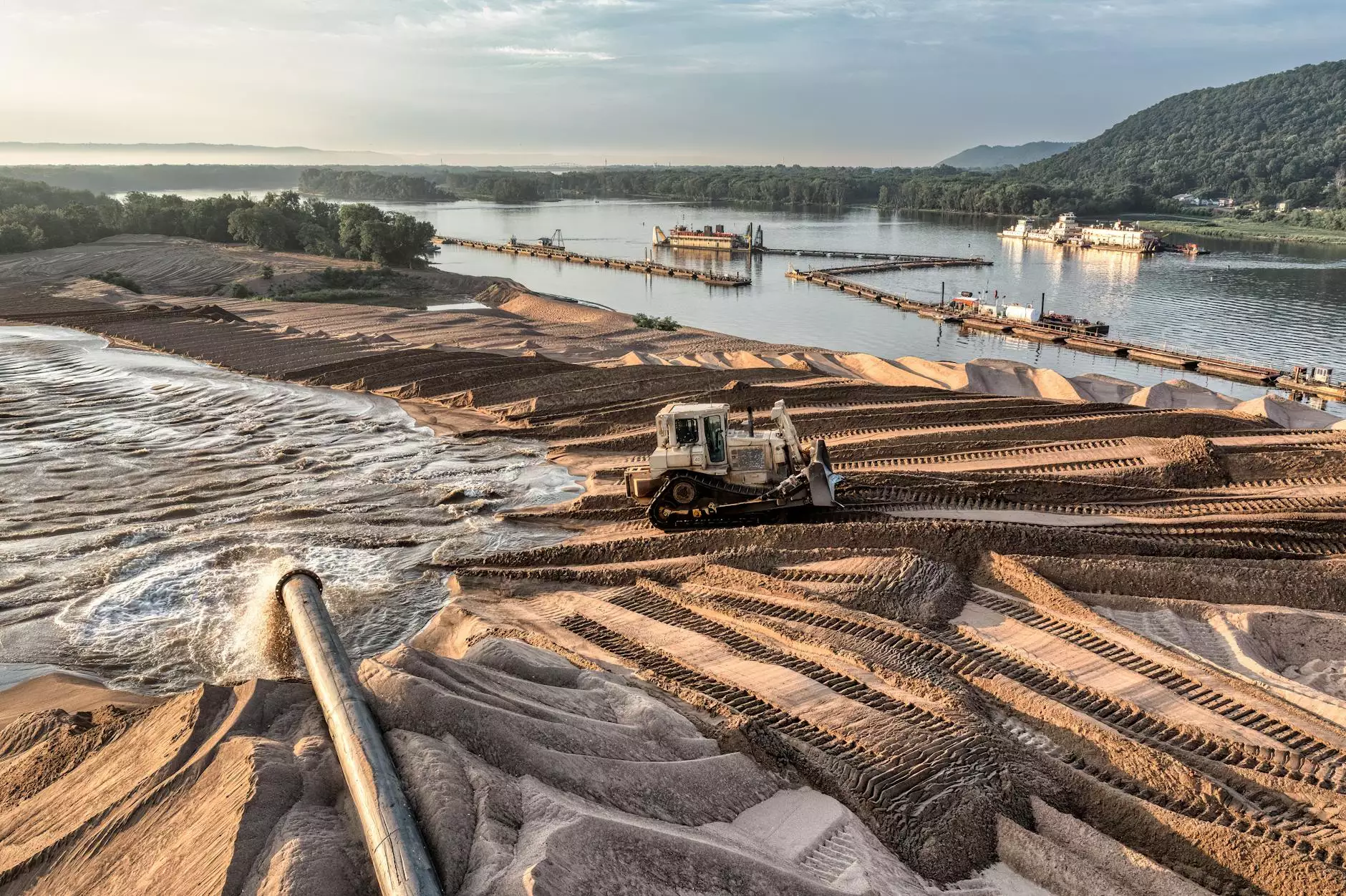Revolutionizing Refrigeration Equipment: The Future of Cold Chain Management

In today's fast-paced global market, businesses must navigate the complex landscape of supply chain management, particularly in the realm of temperature-sensitive products. Refrigeration equipment plays a crucial role in safeguarding the integrity of these products, ensuring they arrive at their destination in optimal condition. This article explores various facets of refrigeration equipment and its significance in the cold chain, highlighting innovations and best practices that can help businesses thrive.
The Importance of Refrigeration in Cold Chain Management
The cold chain refers to a temperature-controlled supply chain essential for preserving and transporting perishable goods. Effective cold chain management mitigates the risk of spoilage, contamination, and waste, ultimately leading to higher customer satisfaction and reduced financial losses.
Critical Sectors Benefiting from Refrigeration Equipment
- Food and Beverage: Ensuring the freshness and safety of products from farm to fork.
- Pharmaceuticals: Preserving the efficacy of drugs and vaccines through stringent temperature control.
- Logistics and Transportation: Streamlining operations for perishable goods across various modes of transport.
- Retail: Offering consumers fresh products with effective display and storage solutions.
Key Innovations in Refrigeration Equipment
As technology advances, the refrigeration industry has seen remarkable innovations that enhance efficiency, reduce environmental impact, and lower operational costs. Below are some of the leading advancements in refrigeration equipment:
1. Eco-Friendly Refrigerants
With a growing emphasis on sustainability, the refrigeration sector is shifting towards the use of environmentally friendly refrigerants. Traditional refrigerants like HFCs (hydrofluorocarbons) are being replaced by alternatives with lower global warming potential (GWP), such as CO2 and hydrocarbons. This transition not only complies with international regulations but also promotes a greener planet.
2. Smart Refrigeration Systems
The integration of the Internet of Things (IoT) in refrigeration equipment has led to the development of smart systems that offer real-time monitoring and control. These systems provide businesses with critical data regarding temperature fluctuations, humidity levels, and equipment performance, facilitating proactive measures to prevent product loss.
3. Energy Efficiency and Automation
Modern refrigeration units are designed with energy efficiency in mind. Features such as variable speed compressors, advanced insulation, and automated controls significantly reduce energy consumption. These enhancements not only lead to cost savings but also contribute to sustainability goals.
Choosing the Right Refrigeration Equipment
Selecting the appropriate refrigeration equipment is essential for optimizing cold chain operations. Here are some factors to consider:
1. Application Specificity
Different products require different temperature ranges and humidity levels. It is critical to choose equipment that caters specifically to the type of goods being handled. For instance, pharmaceuticals might require stricter temperature controls compared to perishables.
2. Size and Capacity
Assessing the volume of goods that need refrigeration is crucial. Selecting equipment that meets both current and future needs ensures efficiency and cost-effectiveness. Over or under-sizing can lead to energy inefficiencies and increased operational costs.
3. Compliance with Regulations
Refrigeration equipment must comply with local and international standards, especially in industries like food safety and pharmaceuticals. Ensuring that equipment meets these regulations avoids potential legal issues and guarantees product safety.
Best Practices for Cold Chain Management
Adopting best practices in cold chain management can enhance the effectiveness of refrigeration equipment, leading to improved operational performance. Here are some strategies:
1. Regular Maintenance and Calibration
To ensure the continual performance of refrigeration systems, regular maintenance and calibration are necessary. Scheduled inspections can identify potential issues before they escalate, ensuring that the equipment operates within the desired parameters.
2. Staff Training and Awareness
Equipping staff with the knowledge and skills to operate refrigeration equipment properly is vital. Comprehensive training programs should cover best practices for handling temperature-sensitive products, awareness of potential hazards, and emergency response procedures.
3. Implementing Continuous Improvement Programs
Businesses should adopt a culture of continuous improvement by regularly assessing their cold chain practices, equipment performance, and staff training. Feedback loops can help identify areas for improvement and drive innovation.
Case Studies: Success Stories in Cold Chain Management
Understanding how different organizations successfully implement refrigeration strategies can provide invaluable insights. Below are a few case studies that illustrate effective practices:
Case Study 1: A Leading Food Distributor
A major food distributor revamped its refrigeration system by integrating smart monitoring technology. This initiative allowed for real-time tracking of temperature and humidity levels across their distribution network, resulting in a significant reduction in spoilage rates and improved customer satisfaction. The investment led to an enhanced reputation and a measurable return on investment.
Case Study 2: Pharmaceutical Company
A pharmaceutical company adopted a comprehensive cold chain strategy that included reliable refrigeration equipment and thorough staff training programs. By ensuring compliance with regulatory standards and maintaining optimal storage conditions, the company achieved a 98% success rate in product efficacy during transport, establishing trust with health professionals and patients alike.
Future Trends in Refrigeration Equipment
The refrigeration industry is on the brink of further transformations, driven by technological advancements and changing consumer demands. Anticipated trends include:
Increased Use of Artificial Intelligence
Artificial Intelligence (AI) is set to revolutionize cold chain management. By analyzing data from various sources, AI can optimize refrigeration operations and predict maintenance needs, enhancing overall efficiency.
Enhanced Integration with Supply Chain Management Systems
Future refrigeration equipment will increasingly integrate with broader supply chain management platforms, allowing businesses to streamline operations from procurement to distribution.
Conclusion
As businesses continue to prioritize cold chain management, investing in advanced refrigeration equipment is essential. By understanding the importance of temperature control and adopting best practices, companies can protect their products and enhance customer satisfaction. Embracing innovations in refrigeration technology not only drives operational efficiency but also supports sustainability—a crucial factor in today's ethical marketplace. To learn more about how top-tier refrigeration solutions can benefit your business, visit https://www.first-coldchain.com/.









